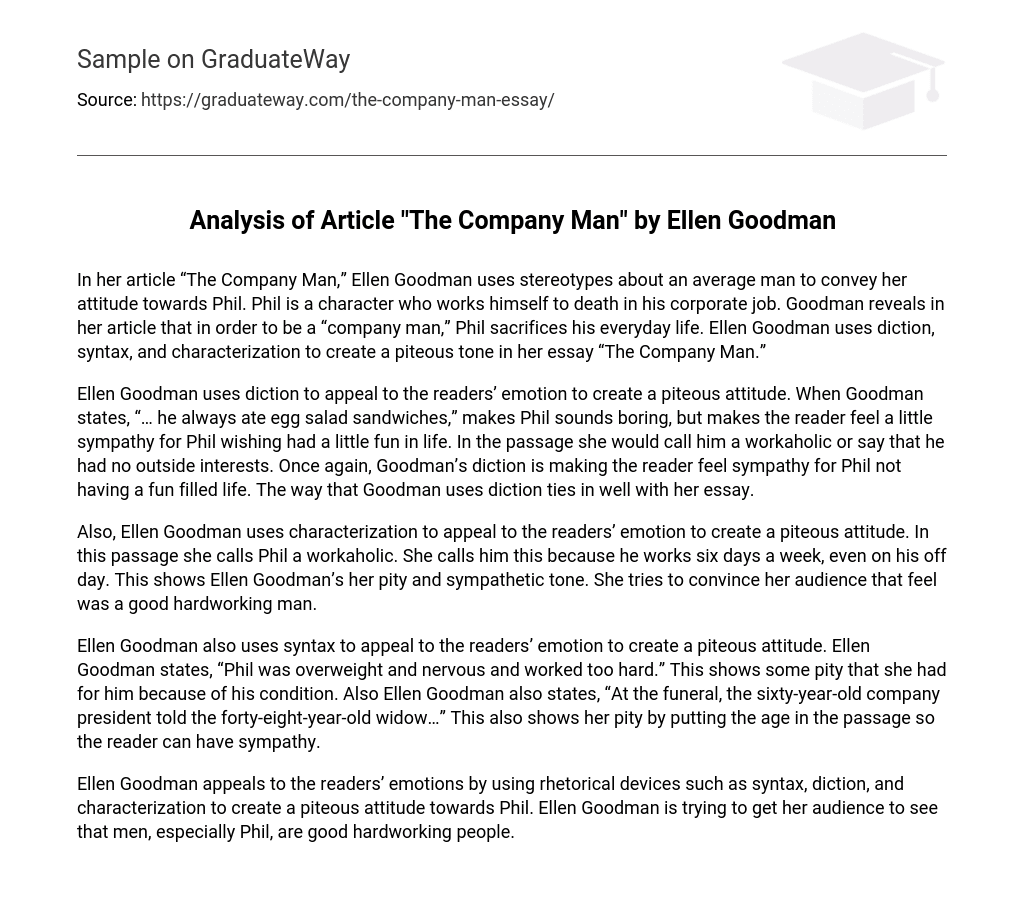In her article “The Company Man,” Ellen Goodman uses stereotypes about an average man to convey her attitude towards Phil. Phil is a character who works himself to death in his corporate job. Goodman reveals in her article that in order to be a “company man,” Phil sacrifices his everyday life. Ellen Goodman uses diction, syntax, and characterization to create a piteous tone in her essay “The Company Man.”
Ellen Goodman uses diction to appeal to the readers’ emotion to create a piteous attitude. When Goodman states, “… he always ate egg salad sandwiches,” makes Phil sounds boring, but makes the reader feel a little sympathy for Phil wishing had a little fun in life. In the passage she would call him a workaholic or say that he had no outside interests. Once again, Goodman’s diction is making the reader feel sympathy for Phil not having a fun filled life. The way that Goodman uses diction ties in well with her essay.
Also, Ellen Goodman uses characterization to appeal to the readers’ emotion to create a piteous attitude. In this passage she calls Phil a workaholic. She calls him this because he works six days a week, even on his off day. This shows Ellen Goodman’s her pity and sympathetic tone. She tries to convince her audience that feel was a good hardworking man.
Ellen Goodman also uses syntax to appeal to the readers’ emotion to create a piteous attitude. Ellen Goodman states, “Phil was overweight and nervous and worked too hard.” This shows some pity that she had for him because of his condition. Also Ellen Goodman also states, “At the funeral, the sixty-year-old company president told the forty-eight-year-old widow…” This also shows her pity by putting the age in the passage so the reader can have sympathy.
Ellen Goodman appeals to the readers’ emotions by using rhetorical devices such as syntax, diction, and characterization to create a piteous attitude towards Phil. Ellen Goodman is trying to get her audience to see that men, especially Phil, are good hardworking people.





